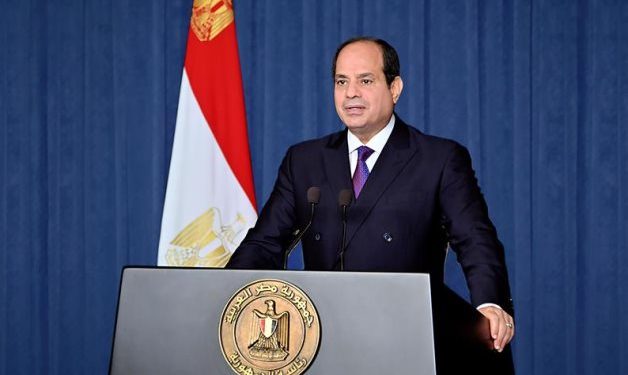CAIRO – 30 September 2020: Egypt’s President Abdel Fattah El Sisi on Wednesday gave a speech at the United Nations Summit on Biodiversity, during which he warned against the risk of the “steady decline in biodiversity and the rapid loss of natural resources”.
Giving a speech, Sisi said decreasing biodiversity and quick loss of natural resources threaten all countries and curb the ability to achieve goals of sustainable development, especially in light of the phenomenon of climate change.
The Presidency has published the translated text of Sisi’s full speech:
It gives me pleasure to join you today at this summit that coincides with the 75th anniversary of the United Nations amid the current exceptional circumstances of the coronavirus outbreak and its economic and social consequences.
We have become more aware of the gravity of the emerging challenges along with their intertwined effects, topped by the environmental issues and their unprecedented repercussions.
Hence, the international community’s vision has been proven right when it has set its sights on the principle of the conservation of nature and biodiversity as one of the priorities of international cooperation.
From this standpoint, the steady decline in biodiversity and the rapid loss of natural resources on the planet as a result of human intervention in nature and biological systems made it imperative to act in a more coordinated and effective manner in the face of these developments that threaten all of our countries, emphasize the differences between developing and developed countries, and limit our ability to achieve sustainable development goals for our peoples, mainly in developing and the least developed countries, particularly if we add the phenomenon of climate change since it is one of the drivers of biodiversity loss.
Hence, our relationship with nature is currently tested; living in harmony with nature is not an option.
To achieve this common purpose, we need to accelerate action on biodiversity for sustainable development
To realize this vision and to overcome the shortcomings in the international effort to achieve the objectives of the United Nations Convention on Biological Diversity (UNCBD) and the subsequent globally agreed targets and goals we have reached to prevent the current degradation of biodiversity, the fourteenth meeting of the Conference of the Parties (COP 14), held in Sharm El-Sheikh in 2012, launched negotiations on the development of the Post-2020 Global Biodiversity Framework. It seeks to achieve ambitious goals supported by means and mechanisms of implementation.
Believing in the sole approach to the conservation of nature and the important role of all actors in this field: states, governments, the civil society and the private sector, Egypt has launched, during this conference, a comprehensive initiative aimed at integrating biodiversity into different sectors by achieving synergies between the three Rio Conventions – on Biodiversity, Climate Change and Desertification
We have worked hard, during the past period, with various partners to support this initiative.
Egypt is also applying its principles through the integration of biodiversity into the sectors of nature reserves and ecotourism, for example, and in its development plans to protect these resources and create more job opportunities
In this respect, Egypt was keen to support the efforts of the African continent in preserving biodiversity and stopping the degradation of nature.
Egypt has hosted, on the sidelines of the same conference in Sharm El-Sheikh, an African high-level meeting addressing the continent’s priorities for the conservation of its diverse natural resources.
The ability of the developing countries, especially in Africa, to participate in this international effort is dependent on the support they get through financing, transferring technology, and building capacities based on the principle of common but differentiated responsibilities and respective capabilities between developed and developing countries
Ladies and Gentlemen
As you know, the richness and protection of biodiversity directly affects all walks of life.
Recognizing that, Egypt has put in place effective systems for the conservation of the natural environment, especially the River Nile, which represents the lifeblood of a civilization in which the rational management of natural resources is embodied
Egypt was, and still is, keen to ensure the sustainability of the river basin ecosystems and has always called for the need to strengthen transboundary cooperation between its countries given the fact that water is the cornerstone of our efforts to conserve biological diversity and protect nature
In conclusion, there is no doubt that the novel coronavirus has imposed new restrictions and challenges hindering the success of international multilateral action on one hand.
However, on the other hand, this pandemic has promoted our sense of shared responsibility regarding the future of this planet and the fate of future generations.
We hope that today’s summit will contribute to raising our awareness of this responsibility and producing clear results reflecting our collective political will to change the status quo for the better.









